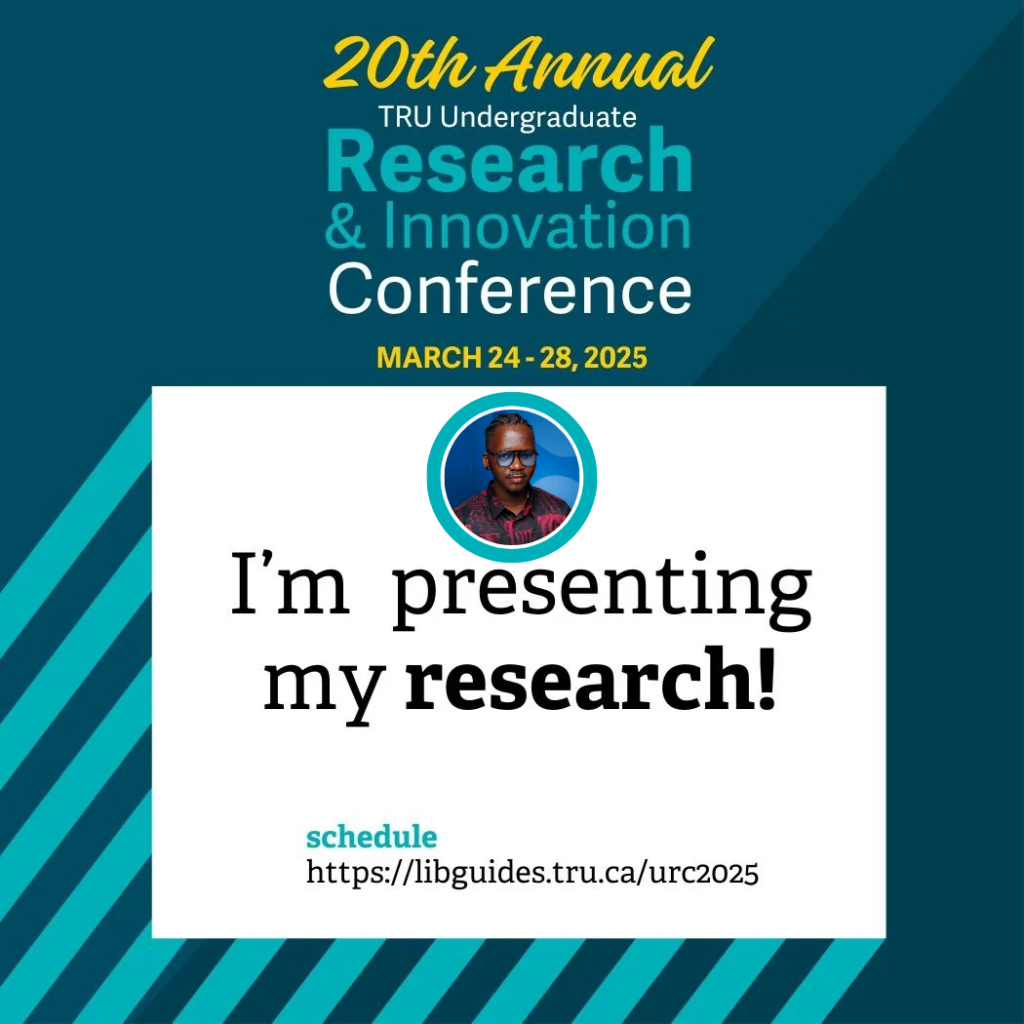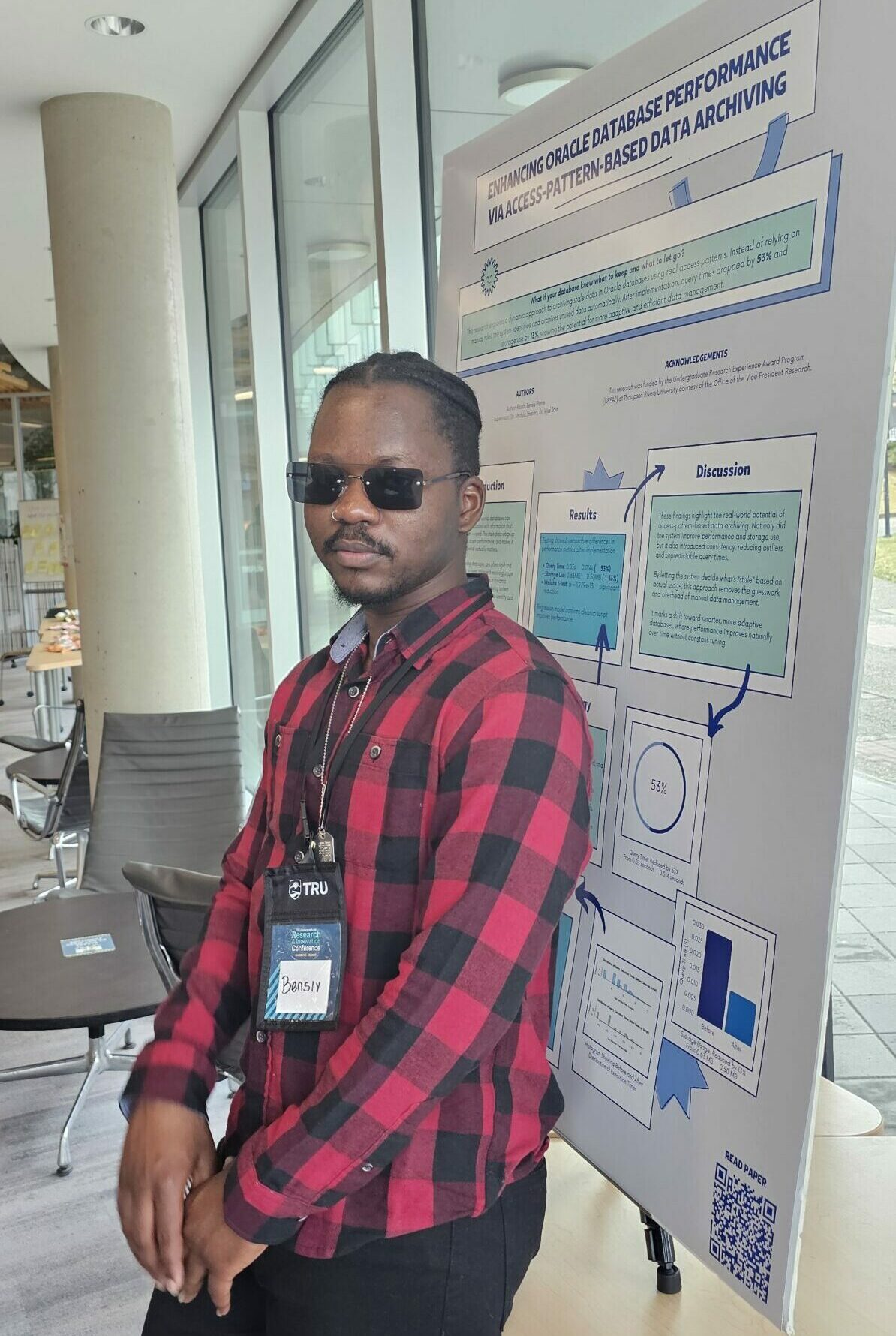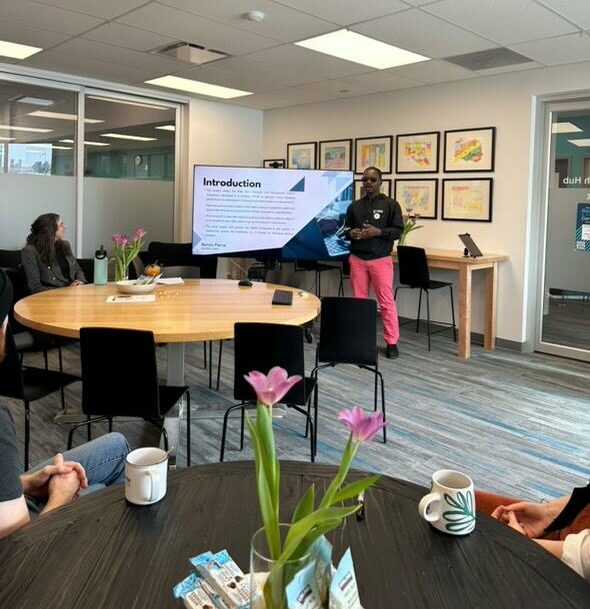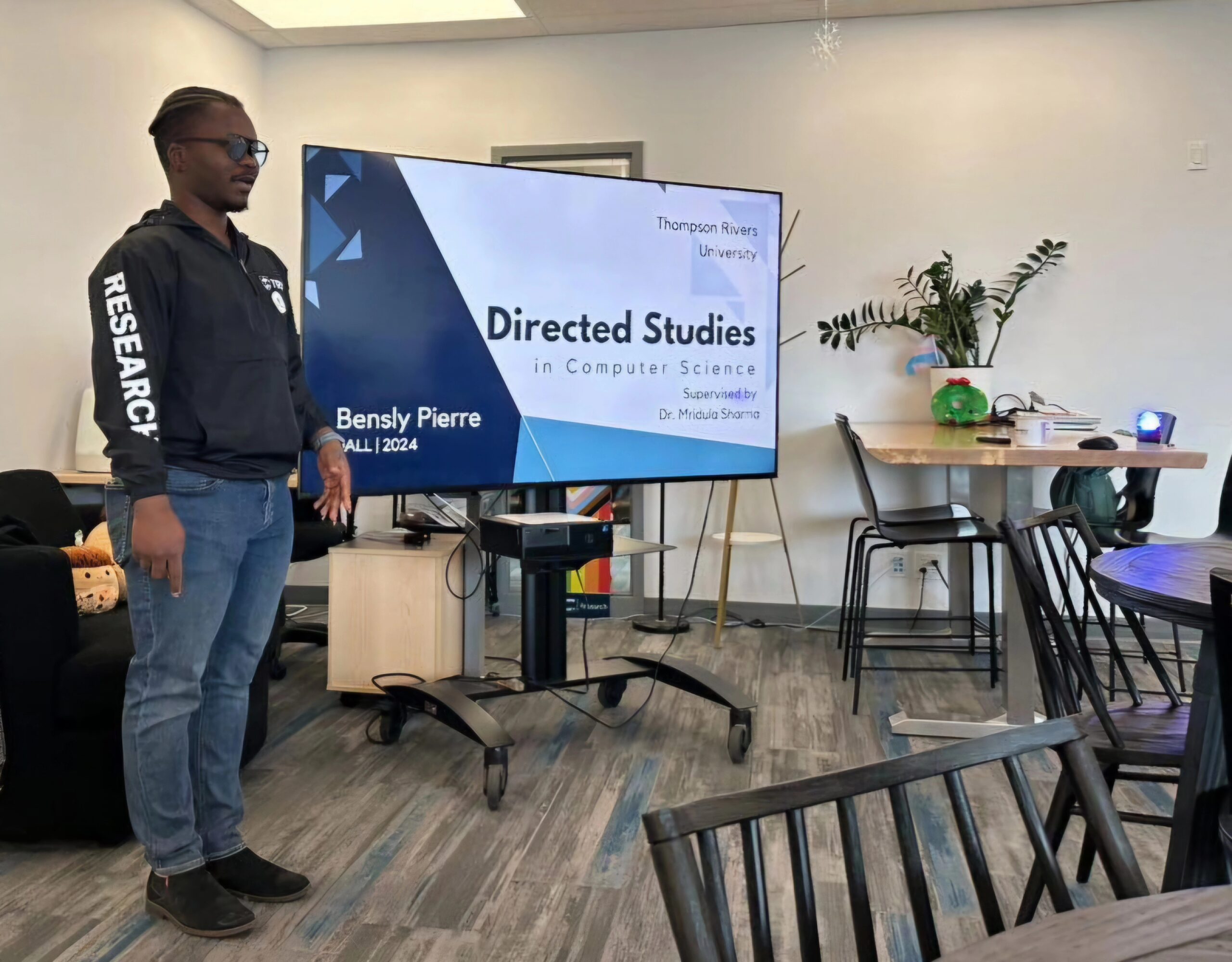Welcome! This portfolio is part of my submission for the Undergraduate Research Certificate at Thompson Rivers University. The Undergraduate Research Certificate is a credential that can be earned in tandem with any undergraduate credit program offered by Thompson Rivers University. The credential formally recognizes the research knowledge, skills, and abilities acquired by students during their undergraduate educational journey at TRU.
INTRODUCTION.

Hello, my name is Bensly Pierre. As a final-year Computer Science student at Thompson Rivers University, research has been at the heart of my academic and professional career. What started as an individual research project has grown into a passion for mentoring, collaboration, and knowledge-sharing.
My research began with the Undergraduate Research Experience Award Program (UREAP), where I conducted a study on databases. This experience introduced me to research design, literature reviews, and data analysis, setting the stage for my future work.
From there, I became a Research Hub Ambassador, helping other students understand the value of undergraduate research. This role eventually led me to become an Undergraduate Research Ambassador, where I took on more responsibility in mentoring and advocating for research initiatives at TRU.
Wanting to dive even deeper, I completed a co-op as a Learning Strategist under the guidance of Kate Fagervik and Dominique Hazel. In this role, I helped develop resources for the TRU Research Hub, collaborated on Open Educational Resources (OERs), and facilitated workshops. Around the same time, I participated in the Students as Partners Fellowship, working alongside peers to co-create meaningful learning experiences.
My involvement in research continued as I became a Research Assistant in the Research Hub for two semesters, contributing to a range of interdisciplinary projects. I also took on the role of a Research Coach for the COOP 1000 course, guiding students in developing research questions and engaging in collaborative inquiry.
Recently, I’ve had the opportunity to share my research findings at events like the In a Nutshell Undergraduate Research Conference and Strike the Match. These experiences have reinforced my ability to conduct research, communicate ideas, and apply my findings in meaningful ways. Completing the Undergraduate Research Certificate is a reflection of my commitment to fostering a strong research culture at TRU.
THE STANDARDS.
REFLECTIVE ESSAY.
Engaging in research has been one of the most transformative aspects of my academic journey. Through coursework, independent projects, and knowledge mobilization efforts, I have developed not only technical expertise but also critical thinking, problem-solving, and communication skills.
This reflective essay explores my evolution as a researcher, highlighting the challenges I faced, the strategies I employed to overcome them, and the key takeaways that have shaped my approach to inquiry. From understanding the fundamentals of research methodology to applying findings in real-world contexts, each experience has reinforced the value of curiosity, perseverance, and collaboration in the pursuit of knowledge.




